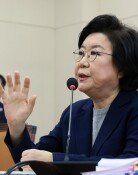[Editorial] KORUS Alliance Stands to Prove its Worth
[Editorial] KORUS Alliance Stands to Prove its Worth
Posted October. 11, 2006 06:49,
North Koreas nuclear testing has served as a somber reminder of just how important the Korea-U.S. alliance is to the survival and development of South Korea, the biggest success story out of the nations that received support from the United States after the Second World War. Koreas rise as a democratic and industrial country within the shortest time in history has demonstrated to the world the power of a democratic market economy. However, it now faces the risk of becoming a nuclear hostage to the North.
John Bolton, U.S. ambassador to the United Nations, declared yesterday at the U.N. Security Council that Washington will take any North Korean acts of aggression against South Korea or Japan as that against the mainland U.S. This is a natural statement to make for allied countries, but it feels particularly welcome, testifying to how much the bilateral relations between Korea and the U.S. have been damaged of late.
To minimize the repercussions of the Norths nuclear test on South Korea, the U.S. must first faithfully carry out the commitments it has made for the security of Korea. South Korea also has no choice but to rely on the nuclear umbrella of the U.S. as it can stand up to the North armed only with conventional weapons.
Both Korean and American governments should start by withdrawing their plan to transfer Koreas wartime OPCON (operational command of the military) to Seoul. Richard Lawless, Deputy Undersecretary of Defense for Asia-Pacific Affairs, has remarked that the Norths nuclear experiment will not make any difference to the OPCON transfer plan. This remains to be seen, however, as some are even claiming the need to reposition American tactical nuclear weapons on the Korean peninsula.
President Roh Moo-hyun announced yesterday that he will study what changes arise in the new circumstances, but such a roundabout way will not do. We must first demand Washington to firmly follow out its security commitments. President Roh needs to take an active stance before the annual ROK-U.S. Security Consultative Meeting (SCM) is held around October 20 in Washington, in which issues regarding OPCON and the dismantling of ROK-US Combined Forces Command (CFC) will be discussed.
Another task awaiting the bilateral alliance is to safeguard the Korean economy against falling into a pit from the security threat. The South Korean economy will suffer a severe blow if the Norths nuclear testing leads to a plummeting of the national credit or a mass exodus of foreign capital, neither of which will be of benefit to the U.S. seeking to sign a Free Trade Agreement with Korea. The two partners must prevent any such crises by cooperating as closely as they did during the 1997 Asian Financial Crisis.
It seems that in light of the North Korean nuclear testing, the time has come for the Korea-U.S. alliance, deemed the most successful one in the past half-century, to now prove its worth.




![하버드 의사가 실천하는 ‘뇌 노화 늦추는 6가지 습관’ [노화설계]](https://dimg.donga.com/c/138/175/90/1/wps/NEWS/IMAGE/2026/01/22/133210626.3.jpg)


